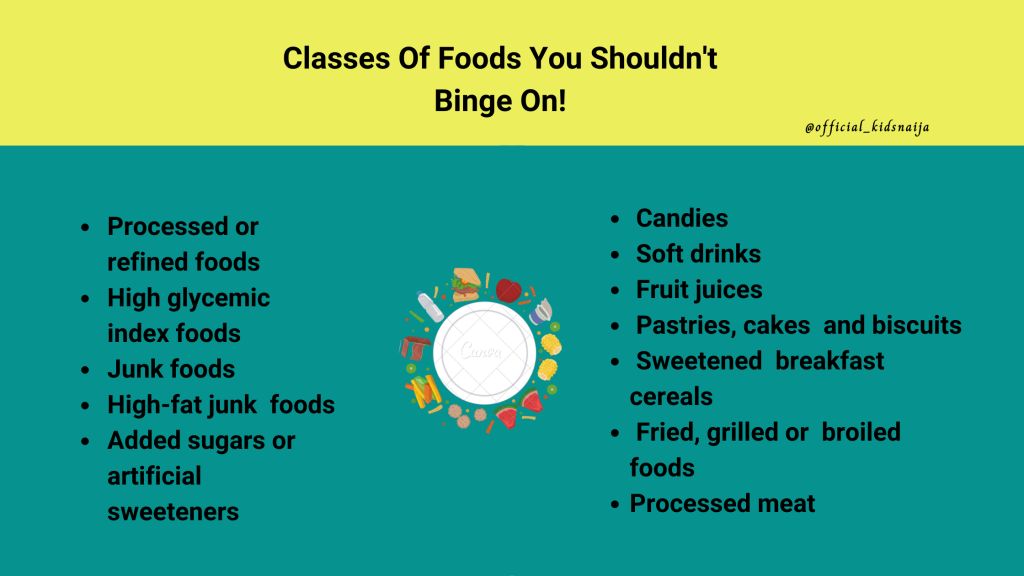Every year, the percentage of children who are overweight likely increases. Obesity is often viewed as an epidemic, just not the kind of raving epidemic that the COVID-19 is. Abnormal weight gain in children has debilitating health implications so, it is worth worrying about, that is, if you want your child to grow into a healthy active adult.
According to the WHO, overweight and obesity are defined as abnormal or excessive fat accumulation that may impair health.
The increasing rate of obesity in children and teens is linked to the global shift in diet being more of high carbs and of course, the lack of physical activity in children. Foods give us calories and physical activities take calories from us. An imbalance that tilts toward the favour of more calories being gotten eventually promotes weight gain.
Table of Content:
-
Childhood Obesity Risks
-
Is BMI Sufficient as A Screening Tool for Unhealthy Weight Gain in Children and Obesity?
-
How BMI-for-age works
-
My Child Eats Healthy but Is Overweight: What Could Lead to Weight Gain in Children?
-
Correctional and Prevention Strategies: How Can I Help My Child Who’s Overweight?
-
Key Message
Childhood Obesity Risks
Childhood obesity predisposes your child to health problems including mental difficulties like:
- Growing into an obese adult which predisposes them to heart diseases and some types of cancers.
- Type 2 diabetes
- Breathing problems
- Risk of kidney failure
- Sleeping difficulties such as sleep apnea and snoring.
- Joint pains and bone problems
- High blood pressure
- High blood cholesterol
- Prone to being teased, shamed, and bullied by other kids
- Low self-esteem and/or depression
- May develop an unhealthy relationship with foods, hence, predisposing child to an eating disorder
- Childhood obesity has been linked to asthma, however, it isn’t yet clear how exactly this plays out.
Is BMI Sufficient as A Screening Tool for Unhealthy Weight Gain in Children and Obesity?
What’s the first thing we think of when we hear weight? Simple, BMI. BMI stands for body mass index and it’s commonly used to determine if one is underweight, normal weight or overweight. The calculation puts into consideration only the weight and height of an individual.
Because children are still growing and more still, growing at their different rates and pace, there is no fixed range of BMI for them, as adults have. The BMI range for adults is:
- Underweight – less than 18.5
- Normal weight – 18.5 to 24
- Overweight – 25 to 29
- Obesity – greater than 30
These differences in growth rate in children reflect in the BMI chart for children by age which is age and sex-specific and is thus referred to as BMI-for-age. Unlike that of adults which use only the scores gotten from the relative calculation of weight against height, BMI-for-age is expressed with growth charts that uses numbers referred to as percentiles.
BMI for adults end at the BMI value while for children and teens, it ends at the BMI percentile – shouldn’t be used as substitutes. To check your child’s BMI for age, click here.
<h4>How BMI-for-age works</h4>
<p>Health practitioners like paediatricians use these growth charts that are divided into 4 categories to monitor a child’s development and growth. The chart is used for children aged 0 to 18 and the categories are:</p><ol><li>Obesity – equal to or greater than 95<sup>th</sup> percentile</li><li>Overweight – from the 85<sup>th</sup> to 94<sup>th</sup> percentile</li><li>Normal weight – from the 5<sup>th</sup> to 84<sup>th</sup> percentile</li><li>Underweight – less than 5<sup>th</sup> percentile</li></ol><p>The BMI percentile for children takes into account their age and gender, and compares their value to those of other children of similar age, gender and height. As a screening tool, the BMI is quite insufficient as it doesn’t take into account other factors such as genetics neither does it reflect the body fat of any child. Hence, starting your child on a weight loss or dieting programme based on the findings a BMI calculator is highly discouraged.
Parents are advised to not let their young children go on a diet primarily because these children are still growing and their weight might not be truly reflective of their health status. The focus at this stage should be on health, and not looks.
And if the size or BMI score of your child is worrisome, then speak to a paediatrician. BMI is a guide, not a diagnosis.
My Child Eats Healthy but Is Overweight: What Could Lead to Weight Gain in Children?
One of the commonest reasons for weight gain in both children and adults is unhealthy food plans. But it isn’t the only reason. Hence, it is quite possible for your child to eat healthily but still gain a few kilograms kgs. Remember, as growing children, it should not be surprising if they do put on a few extra kgs.
- Unhealthy eating pattern: With food marketers trying to pass off unhealthy foods as healthy and the load of incorrect nutritional info available, it’s unlikely not to get confused on what is and isn’t healthy.
- Not enough physical activities: If your kids are taking in calories, then they should be burning some. Let them pick the activities they like.
- Genetics: Obesity tends to run in families, but it isn’t a 100 per cent guarantee that one will develop obesity because it runs in their families.
- Presence of an underlying medical condition like a hormonal disorder. An example of a hormonal disorder is leptin resistance.
- Those with a primary caregiver who is obese
- Psychological difficulties that make children eat more, especially unhealthily in a bid to manage their anxiety, depression, boredom and stress levels.
PS: A schedule helps to reduce boredom in kids.

Correctional and Prevention Strategies: How Can I Help My Child Who’s Overweight?
Healthy weight goal for children: Before getting started, for kids aged 1 to 10, remember that it’s not recommended for them to lose kg since they’re still growing. Hence, their weight needs to be maintained and if the weight is off the charts, then, it should be lost in a subtle and almost unnoticeable pace.
Kids aged 11 to 17 are still growing as well but once they hit puberty, then their bodies can afford to let them lose about 0.23kg to 0.91kg (2 lbs.) every week.
Now that we’ve got the healthy goal in order, here are a few strategies:
- Understand that being overweight doesn’t always mean a person is unfit and unhealthy.
- Be an example: If you aren’t snacking up on fruits or buying them, then surely, they won’t either. Also, engage the kids in cooking healthier meals. Do more cooking than fast foods.
- Don’t promise to trade in a few dessert options or junks if they eat their “healthy” food. It fuels their wants for more dessert.
- Do not single out the overweight child during mealtime
- Is your child getting too much screen time? Kids need to be active and that won’t happen in front of a TV.
- How much exercise are your kids getting or do they prefer to stay indoors all day? Kids should get 60 minutes’ worth of physical activity every day. It could be exercising, dancing or a sports interest of theirs.
- Plan physical family activities with the kids like taking a walk or playing football.
- Introduce filling foods like eggs or other protein foods. Foods that are filling help children eat less. Cut down on the high-carb meals, do more proteins, whole grains (like brown rice) and low-fat foods with fruits and veggies.
- Introduce foods that have a low glycemic index because they don’t promote weight gain in children.
- Start with small changes. Do not introduce these changes all at once. Be subtle and introduce diet and lifestyle changes step-by-step.
- Eliminate weight stigma. Be supportive and understanding, not demoralizing.
<img width="1024" height="576" src="https://kidsnaija.com/wp-content/uploads/2020/09/How-Can-I-Help-My-Child-Whos-Overweight_-1024x576.png" alt="how to manage weight gain in children" loading="lazy" srcset="https://kidsnaija.com/wp-content/uploads/2020/09/How-Can-I-Help-My-Child-Whos-Overweight_-1024x576.png 1024w, https://kidsnaija.com/wp-content/uploads/2020/09/How-Can-I-Help-My-Child-Whos-Overweight_-300x169.png 300w, https://kidsnaija.com/wp-content/uploads/2020/09/How-Can-I-Help-My-Child-Whos-Overweight_-768x432.png 768w, https://kidsnaija.com/wp-content/uploads/2020/09/How-Can-I-Help-My-Child-Whos-Overweight_-1536x864.png 1536w, https://kidsnaija.com/wp-content/uploads/2020/09/How-Can-I-Help-My-Child-Whos-Overweight_-2048x1152.png 2048w" sizes="(max-width: 1024px) 100vw, 1024px" />
<h2>Key Message</h2>
<p>When it comes to weight gain in children, know that it isn’t always unhealthy. Some children have a bigger body frame, this is even seen in chubby babies. Other children have average body frame while others have a smaller body frame.
Slim or not, ensure your child develops healthy eating habits or gets enough physical activities. Hence, the best way to keep tabs on overweight children and ensure that any weight gain whatsoever is healthy is to help them live a wholly healthy lifestyle.


